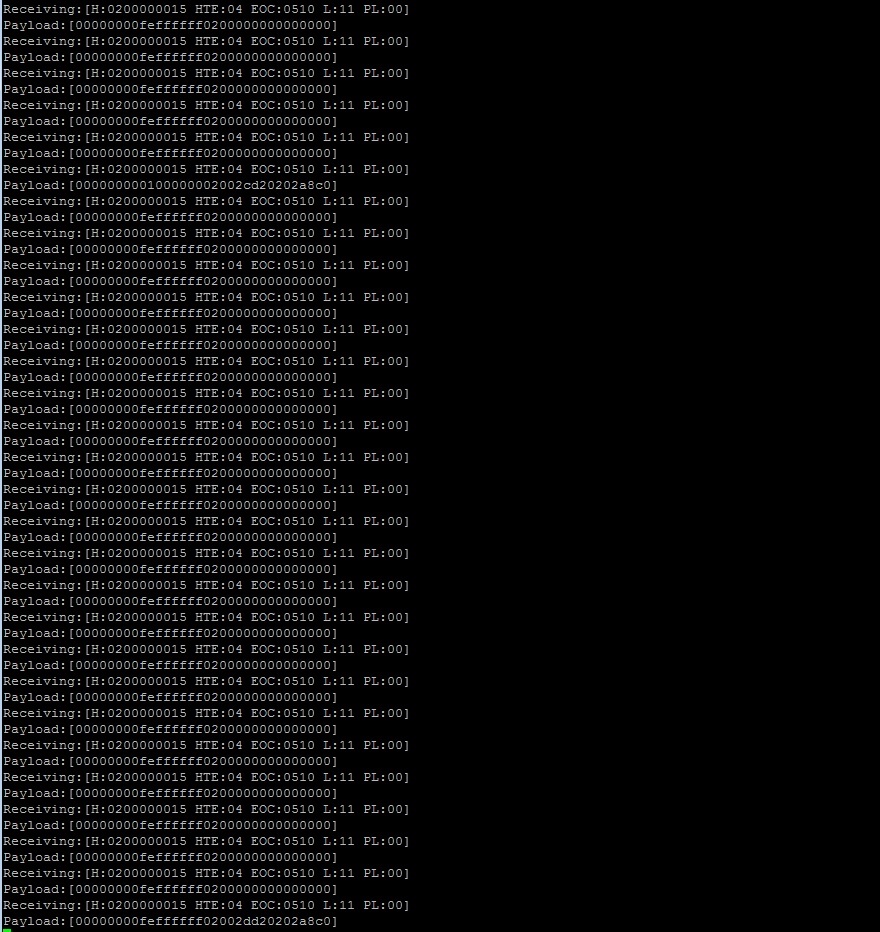As the subjects states, my accept is returning 0xFEFEFEFE. What does that mean?
The listen socket is in a non blocking state.
As I under stand it, accept should only return >=0 or -1,-2.
After a few connections, 2-100, accept never accept new connections and always returns 0xFEFEFEFE. If I look in tAcceptReturnArguments I can see my ip-number and port there as well as iStatus witch is 0xFEFEFEFE.
I am using driver version 1.32.
Send is non blocking.
My code basically does this:
- Create listen socket
- set non blocking
- bind
- listen
- accept
- send ~20bytes of data to client
- close socket returned by accept
- GOTO 5
I have also tried:
- Create listen socket
- set non blocking
- bind
- listen
- accept
- send ~20bytes of data to client
- close socket returned by accept
- close listen socket
- GOTO 1
The results are the same. The socket I get from accept is always 1 when it is working, so I guess that confirms that I am closing the socket correctly.
Can some one tell me what is happening? If you need more information, just let me know.
Thanks,
Per


